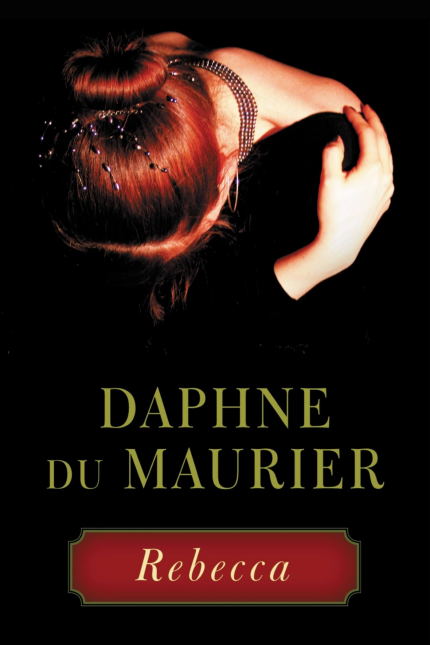Rebecca, by Daphne du Maurier

Rebecca by Daphne du Maurier
My rating: 2 of 5 stars
I never learn… Classics and I are incompatible and yet I still hope to come to terms with at least some of them. “Rebecca” by Daphne du Maurier was another attempt at just that – and one that failed.
The unnamed heroine and narrator meets Maxim de Winter, a widower, agrees to his marriage proposal after a few weeks, and moves with him into his ancestral home Manderley where nothing much happens for a long time.
The shadow of Maxim’s first wife, the eponymous Rebecca, looms large over their marriage, and the new Mrs. de Winter finds herself constantly compared to her predecessor and struggling to fit in with the household staff and society.
Maxim is also very thoughtless and inconsiderate towards the protagonist, especially in the early stages of their marriage. He doesn’t fully open up to the new Mrs. de Winter about his feelings and emotions which leads to misunderstandings and a lack of communication between them. A lot of that stems from what our heroine calls her “shyness” which is more of a question of her being young, inexperienced, and lacking in self-confidence. She has grown up in a very different social milieu from the aristocratic world of Maxim de Winter.
However, her lack of self-assurance and her fear of making mistakes often lead her to second-guess herself and defer to others, which initially gave me the impression that she was not very smart and I did not find her very likeable.
Returning to Maxim, who is also often preoccupied with his own concerns and doesn’t always consider how his actions and words might affect his new wife. For example, he takes her to Manderley, his family estate, without preparing her for the expectations and traditions of the household staff and the local society. He also doesn’t defend her when she is criticised or belittled by others which in turn puts him into a rather unsympathetic light to me.
Adding to that is the fact that Maxim treats his wife like a child (and actually calls her that…) or pet which she perceives pretty well:
»That’s what I do to Jasper,’ I thought. ‘I’m being like Jasper now, leaning against him. He pats me now and again, when he remembers, and I’m pleased, I get closer to him for a moment. He likes me in the way I like Jasper.’«
(Jasper being one of their dogs.)
A lot of what made me feel rather coolly for the new Mrs. de Winter was based on her constant melodramatic and annoying self-pity (in contrast to self-compassion!):
»As I sipped my cold tea I thought with a tired bitter feeling of despair that I would be content to live in one corner of Manderley and Maxim in the other so long as the outside world should never know. If he had no more tenderness for me, never kissed me again, did not speak to me except on matters of necessity, I believed I could bear it if I were certain that nobody knew of this but our two selves. If we could bribe servants not to tell, play our part before relations, before Beatrice, and then when we were alone sit apart in our separate rooms, leading our separate lives.”«
What I really did like was the prose – its elegance, beauty, and artistry. Daphne du Maurier’s writing style is characterised by richly descriptive language, vivid imagery, and a keen attention to detail that creates a sense of atmosphere and mood. Her prose almost flows like music, like a symphony, with a rhythm and flow that can be both soothing and haunting, creating a powerful atmosphere.
The novel’s language and style also reflect the time period in which it was written, with a focus on formality, decorum, and the conventions of English society. This adds to the novel’s sense of historical authenticity and contributes to its enduring appeal as a classic of English literature. It really felt like being there, witnessing it all oneself.
»She would tear off sheet after sheet of that smooth white paper, using it extravagantly, because of the long strokes she made when she wrote, and at the end of each of her personal letters she put her signature, ‘Rebecca’, that tall sloping R dwarfing its fellows.«
And, yet, that pretty much nothing continued to happen for more than two thirds of the novel frustrated me. Especially since after a certain discovery things started to happen very quickly. Pretty much at breakneck speed we’re rushed through the final third of the novel with hardly any time to get “acclimated” to the new tempo. Things started to feel rushed until we came to the sudden and unexpected ending.
Two out of five stars! The End.
Well, not quite, actually: If you’re into mostly character-driven Gothic novels and always wished you lived in early-twentieth century England as an aristocrat, this novel might be for you. For me, it’s back to more modern endeavours.
Ceterum censeo Putin esse delendam
View all my reviews